Blog
Posted on: October 20th, 2023

In recent years, the world has seen a surge in the popularity of aesthetic enhancements, signaling the evolution of plastic surgery. As these plastic surgery trends evolve rapidly, places from the bustling streets of Seoul to the sun-kissed avenues of Los Angeles witness a growing number of people opting for surgical procedures to redefine their appearances. These choices, while deeply personal, also mirror societal expectations. Although pursuing perceived ideal beauty remains a consistent objective, the techniques and preferences vary considerably across different regions.
The Popularity of Plastic Surgery Trends Differs Across Regions
The global appeal of plastic surgery isn’t just about vanity. It’s a complex mosaic of cultural, historical, and modern influences that shape individual and collective perceptions of beauty. What’s considered the epitome of attractiveness in one part of the world might not even register in another. This intriguing divergence is more than just a matter of personal preference; it’s a testament to the rich tapestry of human culture and the myriad ways we express and celebrate beauty.
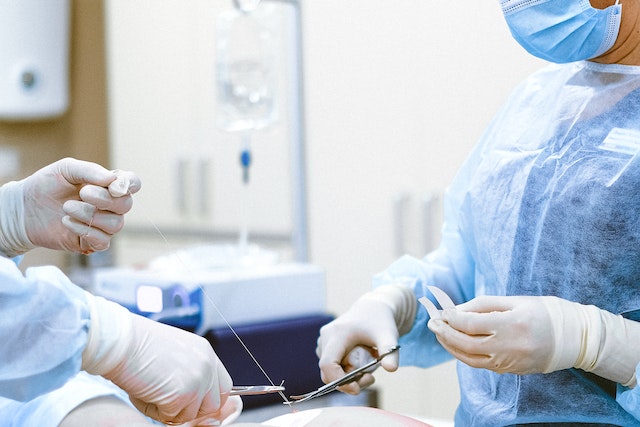
Navigating the nuances of plastic surgery trends, where personal desires intersect with societal beauty benchmarks.
Understanding these regional differences in plastic surgery trends is crucial for those in the medical profession and individuals navigating their aesthetic journeys. Platforms like Instagram and TikTok influence plastic surgery trends significantly, introducing new beauty ideals and amplifying existing ones. Recognizing the breadth and depth of these trends offers a more comprehensive view of global beauty standards, allowing us to appreciate the diversity of human expression. The global landscape of plastic surgery offers a fascinating study into regional preferences, deeply rooted traditions, and the substantial sway of modern-day media. As each region carves out its unique aesthetic ideals, it’s essential to dive deep into these trends, understand their origins, and appreciate the beauty standards they uphold.
Western Plastic Surgery Trends: The Quest for Youth and Symmetry
The Western world remains enthralled with the allure of youth and idealized proportions. Leading the roster of preferred procedures are facelifts, signaling an unwavering desire to turn back the hands of time. Rhinoplasty and breast augmentations follow closely, reflecting societal aspirations for balanced features. With their significant media presence, celebrities play an undeniable role in setting these beauty standards. Yet, a significant shift is underway. Non-invasive treatments, particularly fillers and Botox, are rising in the ranks. Their appeal lies in their ability to provide instant results and their promise of minimal recovery, making them a popular choice for many.
East Asia: A Blend of Tradition and Modernity
East Asia provides a captivating blend of age-old beauty values infused with contemporary influences. Eyelid surgeries are especially popular, specifically aimed at achieving the coveted “double eyelid” appearance. However, it doesn’t stop there. The demand for procedures like jawline reshaping and the V-line approach underscores the region’s inclination towards a refined facial aesthetic. These preferences, rooted in history, are more than mere trends; they echo cultural beauty ideals passed down through generations.
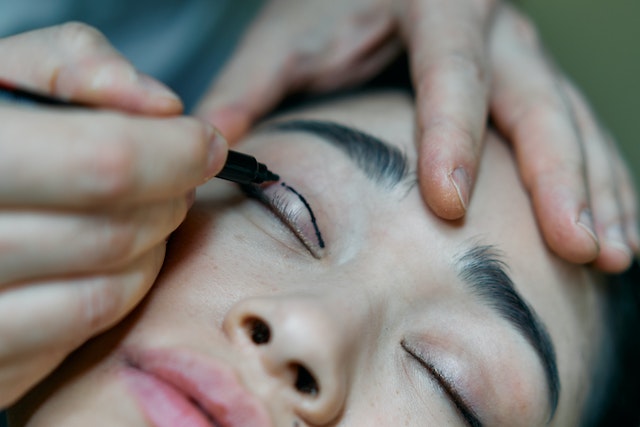
Embracing diversity: understanding and celebrating the myriad expressions of beauty worldwide.
South America: Embracing Curves and Vivacity
South America’s plastic surgery preferences celebrate life, curves, and spirited vivacity. Buttock augmentations and body sculpting procedures are prominent, mirroring the region’s love for pronounced curves. Rhinoplasty, a common procedure worldwide, takes on a unique dimension here. It’s tailored to enhance, respect, and retain ethnic distinctiveness. This harmony of indigenous beauty standards and modern aspirations paints a vivid picture of South America’s diverse aesthetic landscape.
Middle East: Balancing Tradition with Contemporary Aesthetics
The Middle Eastern beauty ethos is a testament to the seamless amalgamation of time-honored traditions and modern tastes. Procedures like nose reshaping and lip augmentations are particularly sought after. These choices, though modern, are always executed with a subtlety that respects the region’s cultural values. This convergence of traditional modesty with contemporary beauty aspirations reveals the Middle East’s nuanced relationship with aesthetic enhancements. Interestingly, a recent Golans Moving and Storage Chicago study indicates that this rich tapestry of beauty standards is among the compelling reasons individuals are relocating to the Middle East. Whether to access specialized procedures or immerse in the unique beauty culture, the region draws attention on the global stage.
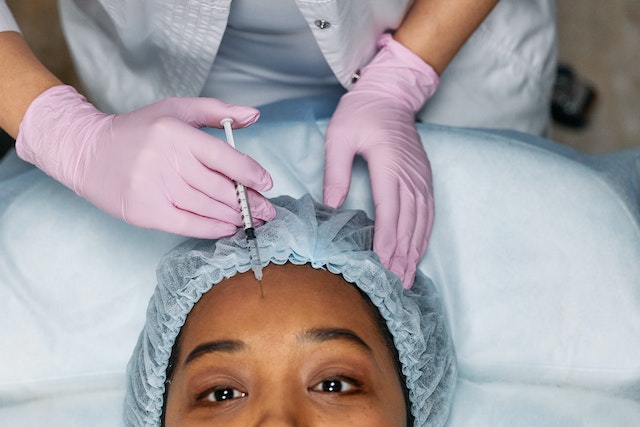
Middle Eastern aesthetics: where time-honored traditions meet contemporary desires.
Africa: A Growing Affinity for Enhancement
Africa’s burgeoning interest in plastic surgery showcases a confluence of its rich cultural heritage with global beauty trends. Rhinoplasty is becoming notably popular, complementing the growing interest in skin-lightening procedures. While some of these trends might resonate with global preferences, they also reflect Africa’s unique beauty narrative, where traditional standards gracefully intersect with modern aesthetics.
Factors Influencing Regional Plastic Surgery Trends
Diverse factors mold regional plastic surgery trends. Historically rooted beauty standards offer the initial blueprint. However, the omnipresent media, driven by globalization, introduces and popularizes newer, often global, aesthetics. Moreover, the economics of plastic surgery, particularly the allure of medical tourism, brings its influences. As individuals cross borders seeking both affordability and quality, they encounter a potpourri of beauty standards, often adopting diverse aesthetic aspirations. Furthermore, as people undergo these procedures, it’s essential to consider the common feelings and emotions after plastic surgery, which play a significant role in post-operative experiences and satisfaction levels.
The Ethical Considerations: Beyond Aesthetics
Beyond the surface-level allure of plastic surgery lies a deeper realm of ethical considerations. Every region, with its distinct beauty standards, must grapple with the challenge of respecting cultural norms while evading potentially harmful stereotypes. Crucially, the decision to undergo any procedure must prioritize the individual’s informed choice. Regional beauty standards might differ, but the universal right to make personal, autonomous decisions about one’s body remains paramount.
Conclusion
Exploring plastic surgery trends reveals a world rich in diversity and cultural nuance. From one region to the next, these trends speak volumes about global beauty ideals and societal aspirations. As we navigate this evolving landscape, we must appreciate the broader beauty tapestry and honor individual choices. Embracing global beauty perspectives enhances our understanding, but celebrating personal decisions remains at the heart of every transformation.
Posted on: September 25th, 2023
5 Minute Read:

Delving into cosmetic surgery is akin to venturing into a transformative journey. It’s a personal decision, one that’s fueled by a myriad of emotions, aspirations, and sometimes societal expectations. Like all major journeys, the road to cosmetic enhancement is not something to embark on lightly. Beyond the initial allure lies a series of contemplative steps. Chief among these is psychological counseling before cosmetic surgery. Let’s learn more about why this step is crucial!
1. Understanding the “Why” Behind the Procedure
Embarking on the transformative path of cosmetic surgery is more than just a fleeting whim. It’s a profound personal journey, often riddled with introspection. The crux of this decision lies in understanding the true motivations behind it. Are these motivations rooted in self-improvement desires? Or are they a result of external voices and pressures?

It’s imperative to meticulously research and select a counselor with a track record of excellence in their domain.
Here’s where psychological counseling emerges as a beacon. It illuminates the intricate pathways of personal desires, societal influences, and potential peer pressures. Within the sanctuary of counseling sessions, individuals can navigate these complexities, distinguishing between genuine self-driven aspirations and possible external influences. This introspective clarity ensures they pursue their surgery for the right reasons. That helps foster a post-operative experience that aligns with one’s genuine desires, free from regret.
2. Managing Expectations
While promising transformation, the world of cosmetic surgery also demands a realistic mindset. In this realm, an experienced plastic surgeon becomes an ally in the operating room and guides patients before the procedure. Therefore, it’s common for seasoned surgeons to recommend psychological counseling, underscoring its importance in ensuring that the patient’s aspirations align with achievable outcomes.
In truth, counseling is where expectations meet reality. While surgeons are equipped with advanced techniques to achieve stunning results, they’re also adept at setting achievable benchmarks. Patients are better prepared to discern between aspirational results and grounded realities by integrating counseling. Such alignment is invaluable, ensuring that post-operative feelings are more satisfying than unmet hopes.
3. Addressing Underlying Issues
Delving the reasons behind the desire for cosmetic surgery sometimes reveals deeper narratives. Not everyone seeks aesthetic changes purely for the sake of appearance. As highlighted by research from the team at Archstone Behavioral Health, a subset of individuals is drawn to cosmetic surgery as an escape, possibly from past traumas or unresolved issues, including addiction histories.
In these situations, the allure of surgery might unintentionally serve as a smokescreen, masking more profound emotional or psychological challenges. Psychological counseling becomes a crucial investigative tool, peeling back the layers to address latent issues. This proactive approach ensures patients pursue surgery for the right reasons and doesn’t become a substitute for deeper emotional healing. It’s one of the biggest benefits of psychological counseling before cosmetic surgery.
4. The Impact of Trends
In the age of digital dominance, the influence of platforms like Instagram and TikTok on personal choices cannot be understated, as social media influences plastic surgery trends profoundly. A procedure that’s all the rage today might fade into obscurity tomorrow. The transience of these trends is concerning.

With social media amplifying aesthetic trends, psychological counseling before cosmetic surgery becomes increasingly vital.
Through counseling, individuals learn to recognize the difference between a genuine personal desire and the pull of a fad. Counseling ensures that individuals make decisions rooted in personal aspirations and not just influenced by the whims of online trends.
5. Ensuring Mental Readiness
Choosing cosmetic surgery is akin to setting forth on an intricate journey that spans both the physical and emotional terrains. The emotional facet, often overlooked, is of paramount importance. Beyond the surgical procedures and the promise of renewed aesthetics lies a spectrum of emotions — ranging from ecstatic highs to occasional dips of self-doubt or uncertainty.
Psychological counseling offers a framework to navigate this emotional roller coaster. Individuals with insights from counseling sessions are mentally fortified and ready to face any post-operative emotional challenges head-on. The role of counseling transcends merely preparing one for surgery. It also provides coping strategies and mental roadmaps. It ensures patients navigate the post-operative phase with resilience and emotional clarity.
6. Identifying Red Flags
Cosmetic surgery, while transformative, is not a universal solution and certainly not for everyone. Some mental health conditions or underlying psychological factors might disqualify you from plastic surgery. That isn’t an inconsistent decision but stems from the comprehensive understanding that certain surgeries could inadvertently aggravate pre-existing mental health challenges.
A cosmetic procedure might promise rejuvenation on the outside, but if it risks unsettling one’s inner mental equilibrium, is it truly worth it? Psychological counseling stands guard here, meticulously screening for these potential pitfalls. The counselor’s discerning eye ensures that any prospective patient’s well-being is prioritized, striking a harmonious balance between physical allure and mental wellness.
7. Post-Op Support
The cosmetic surgery journey extends beyond the operating room and the initial recovery period. While the physical transformation might be evident, the emotional adaptation to a new appearance often operates in the background, subtly yet profoundly. As one’s reflection changes, so can one’s inner emotional landscape, eliciting a range of responses from oneself and those around.

Should post-op challenges arise, always lean on your surgeon and counselor for unwavering guidance and support.
Psychological counseling remains pivotal during this phase, serving as a consistent touchstone. Navigating reactions from peers, grappling with fluctuating self-esteem, or understanding the newfound sense of identity—all these challenges and more find their answers within the nurturing confines of post-operative counseling sessions. This support ensures a holistic healing process, allowing individuals to look their best and feel their best.
Bridging Beauty and Well-Being
It’s clear that psychological counseling before cosmetic surgery is more than just a preliminary step; it’s a bridge linking aesthetic aspirations with sound mental health. As we embrace the harmonious marriage of exterior beauty and inner peace, let’s champion the importance of mental wellness in our aesthetic journeys.
Posted on: August 25th, 2023
5 Minute Read:
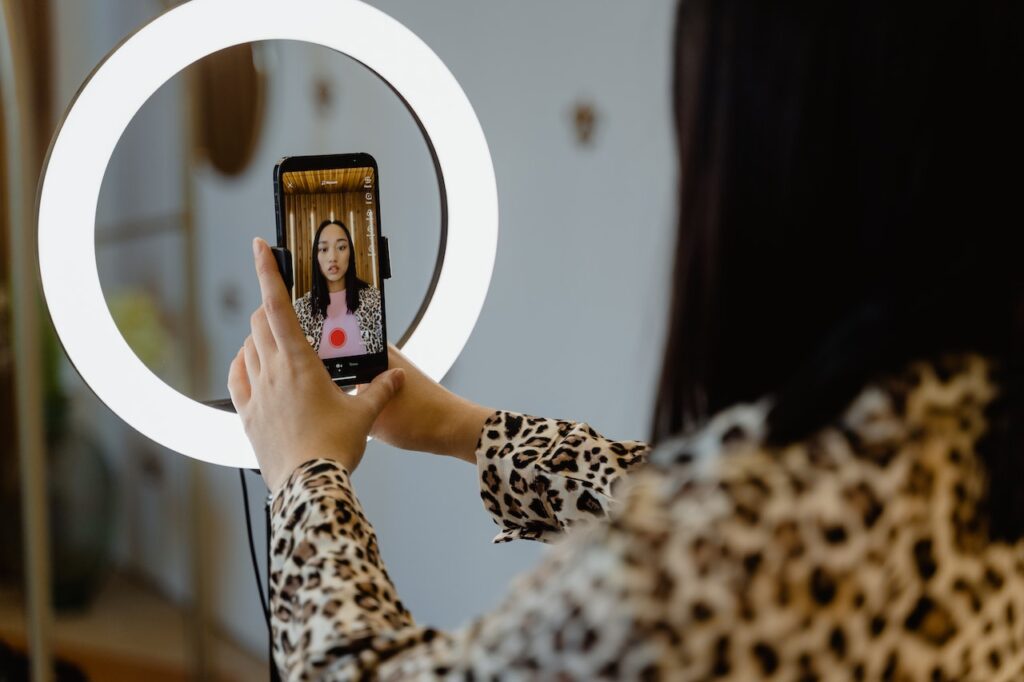
In the digital age, the landscape of cosmetic enhancements is shifting rapidly. Remarkably, platforms like Instagram and TikTok now drive plastic surgery trends. As filters transform faces with a tap, users grapple with altered beauty perceptions. Consequently, the ‘Instagram Face’ emerges, while TikTok virally propels specific aesthetic shifts. Yet, these platforms aren’t just about fleeting trends. They can educate, inspire body positivity, and sometimes mislead. As we dive deeper, we’ll uncover how these platforms influence decisions, how surgeons adapt, and the future of aesthetic procedures in this social media-driven era. Let’s embark on this enlightening journey.
The Rise of the ‘Filtered’ Look
Social media teems with beauty transformations. Filters, at the forefront of this revolution, have made dramatic alterations effortless. Instantly, blemishes vanish, noses refine, and lips plump. Resultantly, these digital touch-ups skew our real-world beauty standards. Suddenly, the ‘Instagram Face,’ characterized by high cheekbones and sultry eyes, dominates our feeds. However, while captivating, it’s essential to remember that this look often strays from reality. It’s birthed a surge in aesthetic treatments, with many seeking to mirror these online ideals. Undeniably, the fusion of tech and beauty has redrawn the boundaries of attractiveness. Yet, as we embrace this era of augmented allure, understanding the line between digital fantasy and authentic beauty becomes paramount. This digital tide, intriguing and influential, shapes our modern perception of cosmetic appeal.

Identifying reality from digital illusion can be challenging in the likes and shares era.
The Virality of Plastic Surgery Trends on TikTok
With its captivating short videos, TikTok has revolutionized the cosmetic enhancement scene. Remarkably, trends like the “fox eye” look swiftly gained popularity on this platform. In addition, challenges centered around aesthetic procedures, such as the “lip filler challenge,” have garnered millions of views. As these trends surge, influencers and celebrities amplify their reach, normalizing and championing specific looks. With each viral sensation, consultations flood clinics, reflecting the app’s tremendous influence.
Yet, while TikTok can spotlight the latest in cosmetic alterations, it’s essential to discern between fleeting fads and authentic, lasting beauty. As we navigate this realm, understanding TikTok’s role in shaping our perceptions becomes paramount. Thus, beyond entertainment, this platform is a powerful force in the evolving world of beauty enhancements.
The Dangers of Social Media-Influenced Decisions
Discerning reality from digital illusion becomes challenging in the age of likes and shares. Social media, especially platforms like TikTok and Instagram, presents beauty ideals that may not always be authentic. Consequently, many users, swayed by filtered perfection, rush to seek aesthetic alterations without thorough research. Interestingly, a study by goodneighborsmoving.com revealed that 35% of individuals, influenced by home makeover trends, later needed storage solutions due to impulse buys of cosmetic products that were not suitable for them. This impulsiveness can lead to dissatisfaction, regret, and, in some cases, health complications.
Moreover, the appeal of trending beauty enhancements can push individuals toward unqualified practitioners, risking subpar results. Furthermore, while social platforms celebrate specific looks today, these trends might fade tomorrow. In this digital whirlwind, self-awareness and comprehensive knowledge remain crucial. So, before succumbing to the magnetic pull of the latest cosmetic trend, pause, reflect, and prioritize personal well-being over fleeting social media fads.
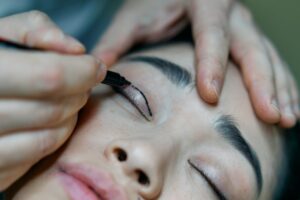
Additionally, the popularity of plastic surgery trends may encourage people to seek out unqualified surgeons.
The Positive Side: Awareness and Education
Amidst the frenzy of plastic surgery trends amplified by platforms like TikTok and Instagram, a silver lining emerges. These platforms, initially designed for entertainment, now serve as educational conduits. Many professionals harness their reach to share vital information about safe cosmetic procedures. Instead of mere before-and-after showcases, they delve into the intricacies of procedures, demystifying myths. Concurrently, real patient stories offer genuine insights, setting realistic expectations for those intrigued.
Additionally, the rise of body positivity movements counterbalances prevailing beauty standards. This growing awareness promotes informed choices, valuing personal well-being over mere aesthetics. Thus, while the allure of trending beauty enhancements remains potent, the digital landscape, when navigated judiciously, can also empower individuals to make enlightened decisions about their aesthetic journeys.
How Surgeons Are Responding
In light of the digital-driven surge in aesthetic desires, surgeons are recalibrating their approach. Navigating the influx of patients, they prioritize comprehensive consultations. Here, they debunk myths and set realistic expectations. Furthermore, as influencers spotlight specific treatments, ethical professionals often emphasize individualized solutions over one-size-fits-all trends. Interestingly, many surgeons now employ social media themselves. They showcase their expertise and educate the masses on the art and science behind procedures. Balancing between trending demands and medical best practices ensures patient satisfaction and safety remain paramount. This evolving dynamic underscores the symbiotic relationship between surgeons and the digital age.
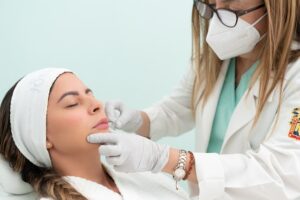
Will the new beauty standard be a TikTok flash in the pan or define an era?
Looking Ahead: The Future of Plastic Surgery in a Digital Age
Peering into the future, the intersection of cosmetic enhancements and digital innovations promises intriguing developments. With advancing tech, virtual and augmented reality might revolutionize consultations, offering immersive previews of potential outcomes. Simultaneously, as globalized beauty standards gain prominence, the challenge will be celebrating individual uniqueness. Furthermore, the rapidity of digital trends poses questions: Will the next beauty ideal last a mere TikTok moment or shape an era? As we tread forward, the importance of digital literacy in discerning real from virtual becomes paramount. In this evolving landscape, embracing both technology and authenticity will chart the course for the future of aesthetic transformations.
Conclusion
In this digital tapestry, plastic surgery trends have woven a fascinating and complex narrative. From the magnetic allure of the “Instagram Face” to the rapid virality of TikTok trends, the modern quest for aesthetic perfection is undeniably intertwined with social media’s omnipresence. Yet, as we’ve explored, it’s crucial to tread with awareness, prioritizing genuine well-being over fleeting digital ideals. Surgeons, too, face the challenge of marrying artistry with evolving digital desires. As we move forward, let’s embrace the advancements but remember to celebrate our unique essence. After all, the journey to self-enhancement should be rooted in authenticity and informed choices.
Posted on: July 25th, 2023
5 Minute Read:

Plastic surgery has gained immense popularity, but there are several factors that can disqualify individuals. Unrealistic expectations, psychological considerations, medical conditions, inadequate finances, poor physical health, and lack of commitment to aftercare are all crucial factors to consider. Having realistic expectations is essential, as unrealistic ones can lead to disappointment. Psychological evaluations are necessary to ensure mental well-being. Medical conditions and associated risks can disqualify individuals from undergoing such a complicated procedure. In fact, financial stability is crucial due to the high cost of procedures. Good physical health is required for safe surgery. Commitment to post-operative care is vital for successful outcomes. It is important to thoroughly evaluate these factors before deciding on plastic surgery and consult with a qualified plastic surgeon.
Reason 1: Unrealistic Expectations
Unrealistic expectations can disqualify individuals from getting plastic surgery. Having realistic expectations is crucial, as expecting drastic and unattainable results can lead to dissatisfaction. It’s important to understand the limitations and have reasonable goals. Unrealistic expectations may include wanting to look like a celebrity or completely altering one’s appearance. Such expectations can result in disappointment and regret. Surgeons assess patients’ expectations during consultations to ensure they align with what can be achieved. Open and honest communication between surgeons and patients is vital to manage expectations and ensure patients clearly understand the potential outcomes.
Reason 2: Mental Health May Stop You From Getting Plastic Surgery
Psychological considerations play a significant role in determining eligibility for plastic surgery. Mental health is essential for successful outcomes. Individuals with underlying psychological conditions such as body dysmorphic disorder or unrealistic self-perception may be disqualified. A thorough psychological evaluation before surgery helps identify red flags and ensures patients are emotionally prepared. Plastic surgeons prioritize the well-being of their patients and want to ensure that they have realistic expectations and a healthy mindset.
Additionally, individuals with untreated mental health issues may be at a higher risk of post-surgical complications and dissatisfaction. Surgeons may recommend therapy or counseling to address underlying psychological concerns before proceeding with plastic surgery. By addressing these considerations, surgeons can enhance patient safety and improve overall satisfaction with the results.

Getting plastic surgery will depend on your mental health.
Reason 3: Medical Conditions and Risks
Medical conditions and associated risks can disqualify individuals from undergoing plastic surgery. Considering one’s overall health before proceeding with any surgical procedure is important. Certain medical conditions, such as uncontrolled diabetes or cardiovascular issues, can increase the risks of complications during surgery. Surgeons prioritize patient safety and may require medical clearance from a primary care physician to ensure the individual is physically fit for the procedure. Additionally, factors such as smoking, obesity, or a compromised immune system can impact surgical outcomes. Understanding and disclosing medical conditions is crucial to determine candidacy for plastic surgery and mitigating potential risks. By evaluating these factors, surgeons can make informed decisions and provide the best care possible for their patients.
Reason 4: Insufficient Financial Resources
Insufficient financial resources can be a disqualifying factor for individuals seeking plastic surgery. It’s important to consider the cost associated with these procedures, including surgeon’s fees, facility expenses, anesthesia, and post-operative care. Plastic procedures can be a significant investment, and individuals must have the means to afford them. Lack of financial stability may compromise the quality of care or the decision to postpone or forego the procedure altogether. However, it’s worth noting that there are options available for financing plastic surgery, such as healthcare loans or payment plans offered by some clinics. It’s crucial to explore these options and clearly understand the financial commitment required before moving forward. Ultimately, considering one’s financial situation is an essential aspect of the decision-making process when it comes to plastic surgery.

These procedures can be pricey, so you need to make sure you have sufficient funds.
Reason 5: Inadequate Physical Health
Inadequate physical health can disqualify individuals from undergoing plastic surgery. Being in good physical health is crucial for a safe surgical experience and optimal results. Certain medical conditions, such as uncontrolled high blood pressure or a weakened immune system, can increase the risks of complications during and after the procedure. Surgeons typically conduct pre-operative physical assessments to evaluate the patient’s overall health and assess their readiness for such a procedure. Factors like smoking, obesity, or certain medications may also impact eligibility. Prioritizing physical well-being and addressing health concerns before considering plastic surgery is essential. Surgeons can enhance patient safety and improve the overall surgical outcome by ensuring adequate physical health.
Reason 6: Lack of Conditions for Proper Aftercare.
Lack of commitment to aftercare can disqualify individuals from getting plastic surgery. Proper post-operative care is crucial for successful recovery and optimal results. However, people living in inadequate conditions, such as mold-infested or cluttered homes, may struggle to create a clean and safe environment necessary for healing. Clutter can hinder mobility, and mold can increase the risk of infections impeding adherence to post-operative instructions. It’s important to create a sanitary and organized space that promotes healing and minimizes the risk of complications. Experts at verifiedmovers.com suggest considering professional storage solutions to store excess items during the recovery period temporarily. This allows for a clutter-free environment, reduces stress, and ensures a smoother healing process. By prioritizing post-operative care and creating a suitable recovery environment, individuals can optimize their plastic surgery outcomes and minimize the risk of complications.

You should consider all these factors before you commit to a procedure like this.
In Conclusion
In conclusion, several factors can disqualify individuals from getting plastic surgery. Unrealistic expectations, psychological considerations, medical conditions, financial constraints, inadequate physical health, and lack of commitment to aftercare are crucial aspects to evaluate. It’s important to have realistic expectations, prioritize mental and physical well-being, disclose medical conditions, consider financial resources, and commit to post-operative care. Thorough evaluations and consultations with qualified plastic surgeons are essential to make informed decisions. By considering these factors, individuals can ensure their safety, satisfaction, and overall success of their journey. It’s crucial to approach plastic surgery with careful consideration, seek professional advice, and be mindful of personal circumstances to achieve the desired results while prioritizing health and well-being.
Posted on: July 11th, 2023
6 Minute Read:

The popularity of cosmetic procedures has skyrocketed in recent years, with more and more people seeking to enhance their appearance. However, beyond the physical transformation lies a complex journey. So, understanding common feelings and emotions after plastic surgery is crucial for anyone embarking on this path. We will delve into the depths of post-surgery emotions, uncovering the roller coaster of experiences individuals often face. So, prepare for a deep dive into the most common feelings following this type of surgery.
The Pre-Surgery Emotions
Firstly, this phase is a whirlwind of emotions. It’s a mix of excitement and anticipation as the surgery date approaches. There’s a hint of nervousness and fear that sneaks in, questioning the risks involved. And sometimes, we can’t help but set our expectations a little too high, hoping for a magical transformation. These emotions all blend, creating a powerful concoction that can overwhelm us. The excitement fills our hearts with dreams of a better appearance. Each day that brings us closer feels like a countdown to a new beginning. However, alongside that excitement, a tinge of anxiety creeps in. We start to worry about the unknown, about what could go wrong. Fear joins the mix, whispering doubts and questioning our decision.
Overall, it’s not easy to navigate through these feelings. Amid this emotional storm, we find ourselves questioning our choices, trying to strike a balance between hope and realism. The pre-surgery phase, with all its excitement, becomes a delicate dance of emotions. It’s okay to feel all these things—it’s a natural part of the journey. However, what’s important is to acknowledge and understand our emotions and seek support from loved ones and professionals. Working with experienced professionals can ease the feelings of stress during any life-changing process, not just plastic surgery. Relocation experts from statetostatemove.com say that, from their experience, moving to a new place or starting a new job can be just as emotional. Therefore, just as with any other taxing event, working with professionals who can guide you through this life-changing moment can help immensely.

Anxiety is one of the most common emotions after plastic surgery.
Emotions Immediately After Plastic Surgery
Next, immediately after plastic surgery, a surge of feelings envelops individuals. Firstly, there is a strong sense of relief as the procedure is finally over. However, alongside the relief, it’s not uncommon for a wave of regret or second-guessing to wash over them. Despite the initial discomfort and pain, there may be a glimmer of satisfaction, knowing that the journey toward their desired appearance has begun. As the body adjusts to the changes, individuals may experience moments of doubt and uncertainty. The transition period can be challenging as they adapt to their new appearance. Coping with swelling, bruising, and bandages can lead to frustration and impatience.
Nevertheless, with each passing day, as physical discomfort subsides, a growing acceptance and appreciation of the results can emerge. It’s crucial to remember that these responses can vary widely depending on the individual and the specific procedure undergone. Some may feel a surge of happiness and confidence, while others may experience a more complex emotional journey. The support of loved ones and medical professionals during this post-surgery phase is invaluable, providing reassurance, encouragement, and guidance. Moreover, it’s important to give oneself time to heal both physically and mentally, understanding that the emotional impact of plastic surgery is a natural part of the transformative process.

Ask for support from professionals as well as your friends.
Emotional Responses After Plastic Surgery
For many individuals, there is an immediate boost in self-confidence and improved body image. They may feel a sense of liberation and empowerment, finally embracing their desired appearance. The positive reactions from others and increased social acceptance can reinforce these emotions, creating a ripple effect of happiness and contentment. However, it’s important to acknowledge that not all responses are positive. Some individuals may experience dissatisfaction with the results, leading to negative body image and disappointment. Unrealistic expectations or minor imperfections can magnify these emotions, causing a temporary setback.
The adjustment period is crucial as individuals gradually adapt to their new appearance. It may involve a mix of self-reflection, self-acceptance, and self-care. Over time, as individuals become more comfortable in their skin, a healthier and more stable emotional state can develop. So, it’s essential to remember that the mental impact of plastic surgery is unique to each individual, and it’s normal to experience a range of feelings along the way. Seeking support from loved ones and professional guidance can greatly assist in navigating these responses. Ultimately, this journey after plastic surgery can lead to personal growth, increased self-awareness, and a newfound sense of confidence in one’s own identity.

The emotions after plastic surgery are very important to deal with correctly.
How to Deal With Emotions After Plastic Surgery
Dealing with emotions after plastic surgery requires patience, self-care, and support. Firstly, allow yourself time to process and acknowledge your feelings. It’s okay to feel a mix of excitement, uncertainty, or even disappointment. Next, practice self-compassion and remind yourself that emotional healing takes time. Seek support from loved ones, friends, or support groups who can provide a listening ear and understanding. Communicate openly with your surgeon or medical professionals about your feelings and concerns. They can offer guidance and reassurance. Additionally, engage in self-care activities that promote relaxation and positivity. This can include practicing mindfulness, journaling, engaging in hobbies, or seeking professional therapy if needed.
Next, avoid comparing your results to others or idealized standards. Remember that everyone’s journey is unique. Focus on your progress and celebrate the positive changes. Additionally, stay realistic in your expectations and remember that healing and final results take time. Be kind to yourself and prioritize self-acceptance. Finally, embrace the journey of self-discovery and personal growth accompanying plastic surgery. Celebrate and embrace the newfound confidence and self-esteem that may arise. Ultimately, remember that these feelings are a natural part of the process. With time, patience, and support, you can navigate through them and embrace the positive transformation that plastic surgery has brought to your life.
Summing Up
From the pre-surgery phase filled with excitement and anxiety to the immediate post-surgery phase, marked by relief, regret, and acceptance, emotions run high. The impact of plastic surgery on self-confidence, body image, and social acceptance is undeniable. However, it’s important to recognize that emotional responses vary, and not all experiences are uniformly positive. Managing expectations, seeking support, and allowing oneself time to heal is crucial in navigating the emotional roller coaster. Remember, it’s okay to feel a range of emotions after plastic surgery and to seek professional help if needed. The emotional aftermath of plastic surgery offers an opportunity for self-reflection, self-acceptance, and personal growth. Embrace the journey, be patient with yourself, and celebrate the positive changes that plastic surgery can bring. Ultimately, understanding and addressing the emotional aspects alongside the physical changes is essential for a fulfilling and satisfying experience.
























